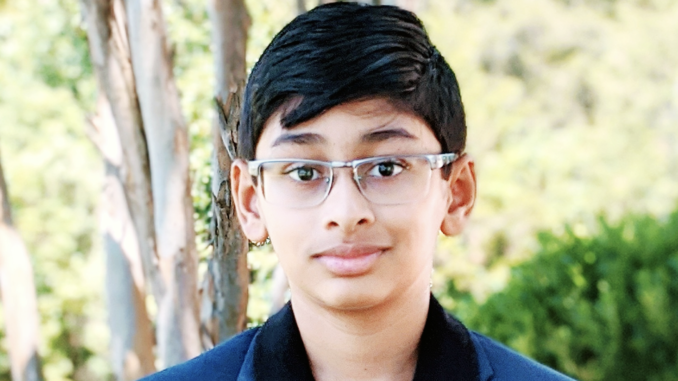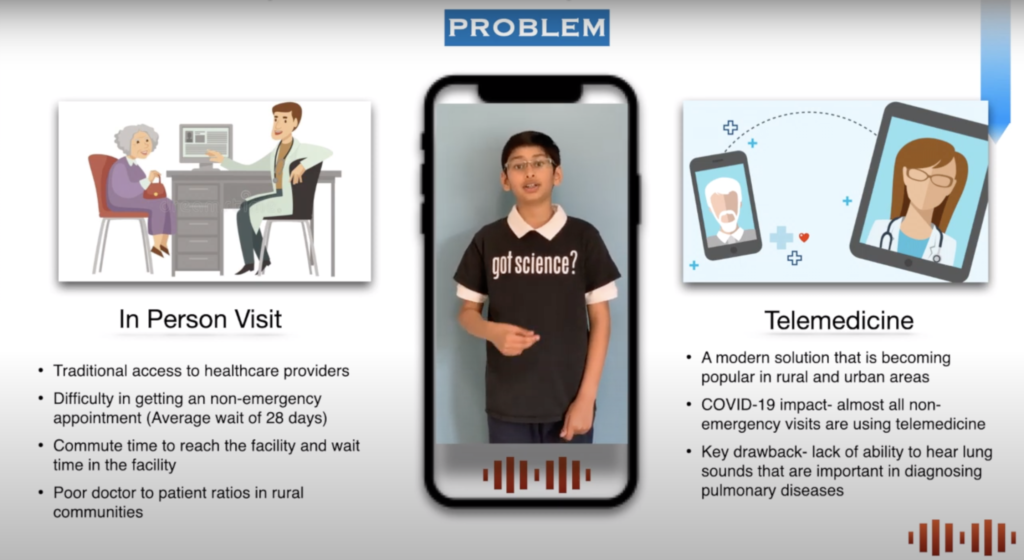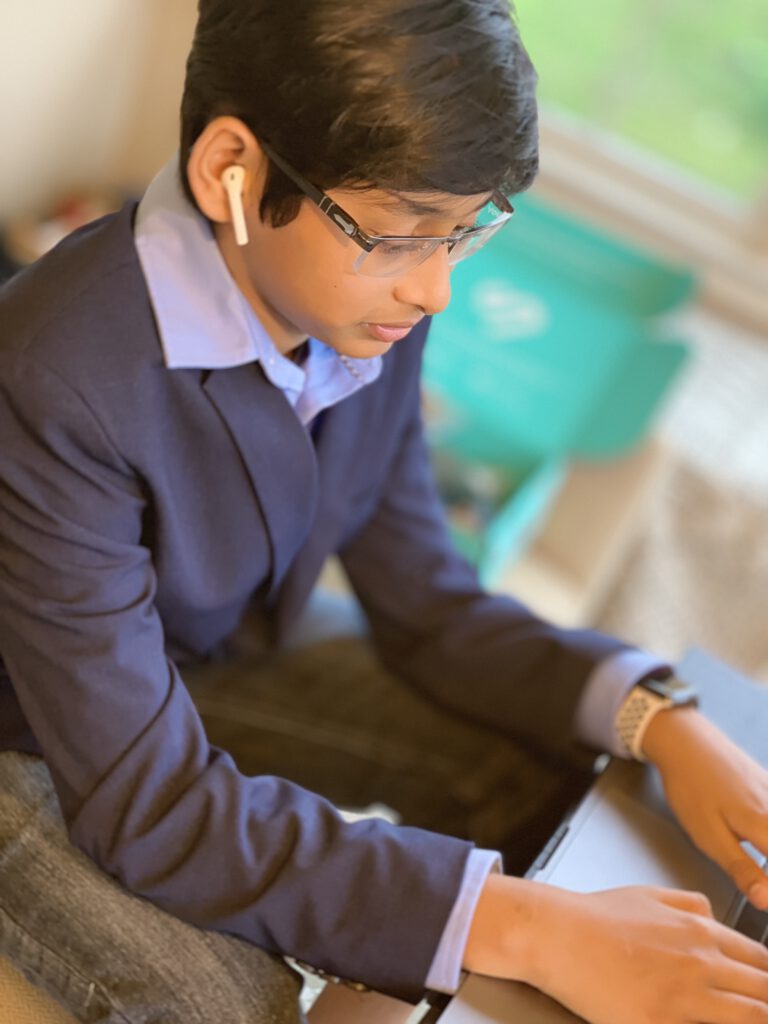
SCIENCE SUPERSTAR
By Jill Devine
“There is no success without hard work.”
Those are the words of Samvrit Rao, an eighth-grader at Stone Hill Middle School in Ashburn. But Samvrit isn’t just any eighth-grader. In the world of science, he’s something of a superstar — coming up with ideas and creating inventions that could one day change the world.
Here’s a snapshot of his recent resume.
An asthma sufferer, Samvrit was annoyed by constant trips to doctors’ offices to assess his condition. He envisioned a telemedicine-based device that could capture a patient’s “breath sounds” using a stethoscope and then relay those sounds, along with symptomatic data, to physicians via a smartphone app. Samvrit named his invention Boreas, after the Greek god of the north wind.
“Like air going through the lungs,” he said.
The Boreas project impressed the judges enough that Samvrit was named one of 10 finalists in the 2020 3M Young Scientist Challenge, advancing him to the final in mid-October. If he wins, the grand prize includes $25,000 and the prestigious title of America’s Top Young Scientist.
Samvrit also worked with other members of Stone Hill Middle School science teams to become a regional winner and national finalist — not once but twice (2019 and 2020) in the U.S. Army’s eCyberMission competition. In sixth grade, his team developed a plan for a low-cost water filter that can be used during natural disasters. In seventh grade, they crowdsourced a geolocation app to identify sources of mosquito breeding to help prevent mosquito-borne diseases.
Samvrit, who is 13 and lives in Ashburn’s Loudoun Valley II neighborhood, earned his first scientific accolade in kindergarten when he finished second in a science fair in New Jersey. More recently, he won accolades for an all-natural soap that doesn’t contribute to water pollution. Samvrit has advice for students who are interested in STEM — “Pursue many competitions,” he said. “It’s OK if you don’t win, because the more times you compete, the more experience you gain.”
His Boreas prototype already works well enough to be used effectively by physicians, so Samvrit is now focused on improving the app’s functionality. Like any good entrepreneur, he is holding proprietary details close to his chest, in hopes that he can eventually commercialize his product.
“That would be amazing, because Boreas can improve telemedicine and save lives,” he said.
As a finalist, Samvrit earned the opportunity to work virtually with Kandyce Bohannon, a senior software engineer at 3M’s Corporate Research Systems Lab. She helped guide him as he enhanced his prototype.
“The first time I saw Samvrit’s project entry video — where he described analyzing breath sounds in a telemedicine application — I became so excited about the next generation of scientists,” Bohannon said. “His project is extremely relevant in our current situation with COVID-19.”
Bohannon also connected Samvrit with colleagues around 3M to gain further insight into how to enhance his innovation. “Working with such distinguished scientists has been a surreal experience,” Samvrit said.
Heather Jackson is the teacher in charge of preparing Stone Hill students for the eCyberMission event. Jackson describes Samvrit as bright and motivated.
“He is able to talk on-level with both adults and peers seamlessly,” she said. “If someone in the group says something he does not agree with, Samvrit diplomatically listens to that point of view before steering the discussion to where he thinks it should be … his personality makes him a great leader.”
Samvrit’s father, Vasudev Rao, is a physician, so he has grown up around medicine and science. Even before COVID-19, Samvrit admired the work of Dr. Anthony Fauci, who has inspired him to pursue a career in immunology. And even at 13, Samvrit has it all planned out. He hopes to attend Thomas Jefferson High School or the Academies of Loudoun, followed by medical school and then a career in medical practice or research.
Studying and preparing for competitions occupies much of Samvrit’s time, but he said he still enjoys sports and video games like other kids his age. Samvrit likes to study with music on — EDM (electronic dance music) or classical violin music are his favorites — because it helps him concentrate. He shared a few study tips for other budding scientists.
“Stay focused and think before you blurt something out. Take frequent breaks. Double check your work and develop good collaboration skills. And, in today’s virtual world, always click ‘Save’ before you exit a file,” Samvrit said with a laugh.
Jill Devine is a freelance writer who lives in Loudoun County. When not writing, she enjoys her job as a kindergarten teaching assistant for Loudoun County Public Schools.


